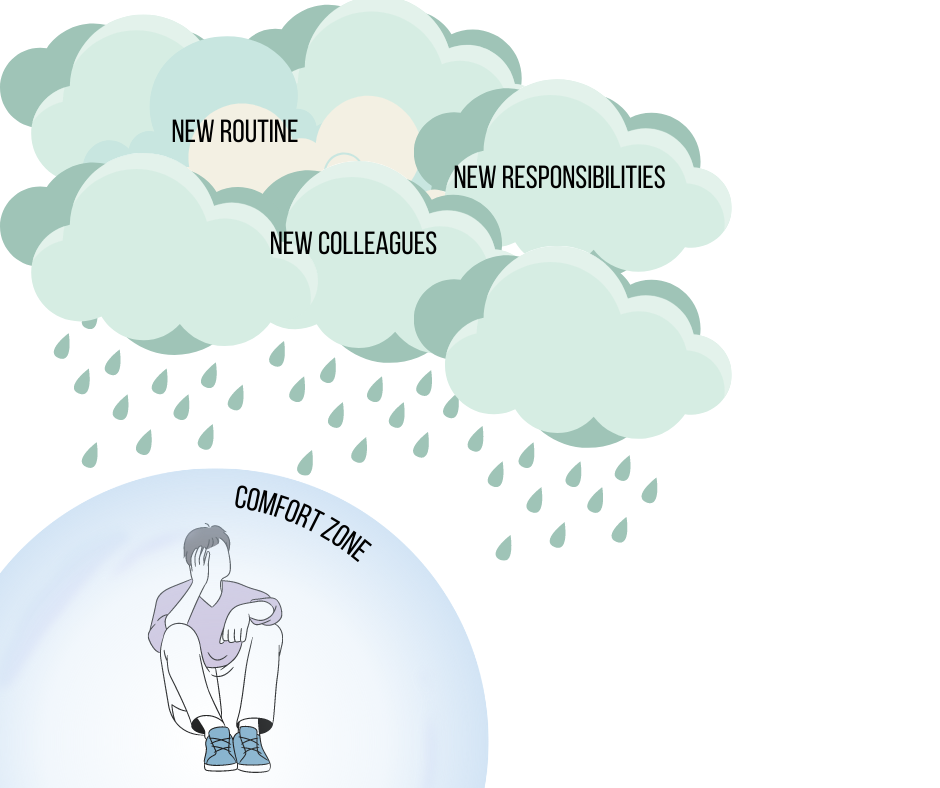Executive Corner – Between a Paycheck and a Hard Place
Michael Clegg | 08/23/2023
Why do people stay with bad bosses?
There are so many reasons to leave a bad boss. For starters, bad bosses can be the root of toxic work culture. It’s hard to generalize a bad boss because there are so many different things a bad boss can say or do or not do, but it can be easy to identify a bad boss. Here are 5 quick and simple key identifiers to look out for:
- Lack of Communication and Transparency: A bad boss often fails to communicate clearly, provide necessary information, or inform employees about important decisions. They might withhold critical details about projects, changes, or goals, leading to confusion and frustration among the team.
- Micromanagement: Bad bosses tend to micromanage their employees, showing a lack of trust in their abilities. They may excessively monitor tasks, dictate every detail, and resist delegating responsibilities, which stifles autonomy and creativity.
- Unfair Treatment: Bad bosses can exhibit favoritism, favoring certain employees while neglecting others. They might assign tasks unfairly, offer better opportunities to a select few, or create an environment where employees feel they’re not treated equitably.
- Negative Feedback & Criticism: Instead of providing constructive feedback, bad bosses resort to belittling, berating, or offering constant negative criticism. They might demean employees publicly, undermine their confidence, and make them feel undervalued. This includes when ideas are shared and instantly shot down by the boss.
- Inability to Recognize Achievements: A bad boss often fails to acknowledge their employees’ accomplishments and hard work. They might take credit for their team’s successes, ignore achievements, or fail to provide praise and recognition, leading to a demoralized workforce.
Not so hard to identify if your boss falls into these categories, right?
Well, the truth is, a lot of people stay with their current employer even if they know their boss is toxic. In fact, 85% of employees have reported that they would “put up with a bad boss for a year and 38% for 3 years or more,” according to a study by ResumeLab.
But why? Why subject yourself to toxic culture and management when you could get a job that’s much better for your mental health?
The #1 reason: Money
Financial stability is one of the most compelling reasons individuals remain with bad bosses. Many jobs provide the financial security to sustain their lives and support their families. Leaving a job without a backup plan can be scary, potentially leading to unpaid bills, empty pantries, and insurance coverage gaps. This becomes even more complicated when children are involved, as losing job-related insurance could pose a significant risk to their well-being. As for those who have considered leaving, many believe that leaving would mean having to take a pay cut.
People have bills to pay, and sometimes finding a new job isn’t worth the risk.
Also, not worth the risk? Change.
 Human beings are creatures of habit.
Human beings are creatures of habit.
Despite its challenges, staying in a job with a bad boss offers a degree of predictability and routine. The idea of leaping into the unknown with new colleagues, responsibilities, and routines can be more intimidating than enduring the discomfort of a bad boss.
The fear of change, the struggle to build new relationships, and the apprehension of unfamiliar work culture can all contribute to this reluctance to leave one’s comfort zone. Sometimes, the allure of short-term comfort and stability trumps the potential for long-term career growth. The fear of uncertainty associated with changing jobs may outweigh the desire for professional advancement, prompting individuals to stay in unsatisfying roles.
I stayed in a job for five years with a bad boss. The primary reason was that I was unsure of the next opportunity, and “what if” the next job was worse than my current job. We use fear to talk ourselves out of change. It wasn’t until someone I knew really well had a role inside his company that I decided to change. It erased some of the discomforts of the unknown.
Loyalty doesn’t always pay off.
Loyalty to an organization, team, or colleagues can run deep. Years of service or close relationships with coworkers can create a sense of attachment, making it hard to sever ties. The commitment to projects and a desire to weather difficult times together can foster a feeling of duty that outweighs the negative impact of a bad boss. That’s another thing that ResumeLab’s study found, “the employees had something in common—[their] mutual hatred of [their] boss.”
Apart from just mutual hatred of the boss, positive, strong bonds with colleagues or subordinates can create a sense of camaraderie and belonging that’s hard to replicate elsewhere. The thought of leaving behind these relationships can be a powerful deterrent to leaving a job, even if it means enduring a difficult boss.
In some cases, bad bosses and toxic culture might be the norm.
Workplace cultures can shape our perceptions of what is considered normal. In environments where dealing with difficult bosses is commonplace, individuals may not recognize it as a problem. This normalization of bad behavior can cause employees to tolerate it rather than seek alternatives.
False hope for improvement is another reason many people endure toxic bosses. Optimism can be a double-edged sword. People often cling to the hope that their bad boss will change or improve over time. Empty promises from employers feed this optimism, leading individuals to believe brighter days are on the horizon. This unwarranted hope can lead to prolonged suffering.
The decision to stay with a bad boss is not a simple one. It’s a multifaceted interplay of financial stability, comfort, limited options, loyalty, false hopes, personal relationships, cultural norms, benefits, and short-term thinking. While it may seem baffling from an outsider’s perspective, these factors shed light on the intricate web of emotions, expectations, and practical considerations that keep individuals tethered to challenging work environments. Recognizing these complexities can help employees and employers address the underlying issues and create healthier, more productive workplaces.
Want more leadership-focused content?




